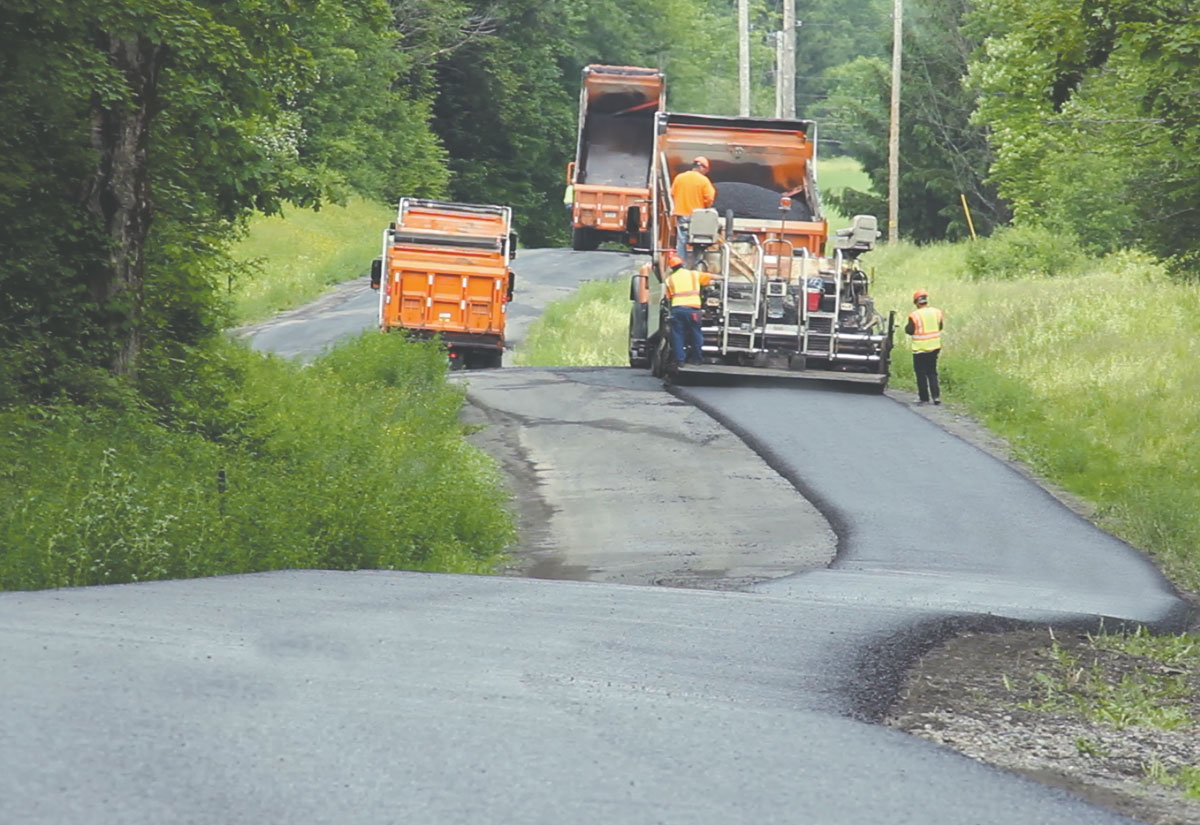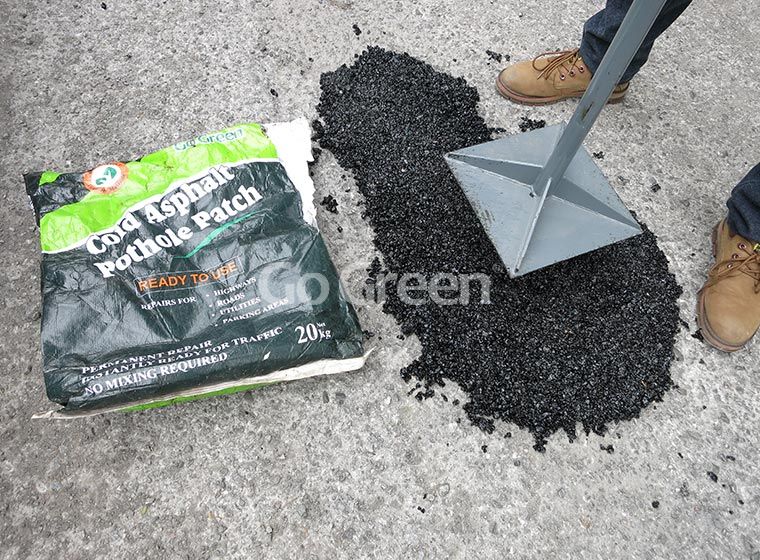Cold Mix Asphalt: Changing the Means We Build Roads
As the infrastructure industry remains to develop, the application of cool mix asphalt offers an appealing shift in roadway construction techniques. Its versatility to different climate conditions and lasting features have actually stimulated passion in the building sector. The innovative buildings of chilly mix asphalt are challenging conventional road-building techniques, leading the way for boosted efficiency and durability. This transformative material is not just reshaping the construction landscape yet likewise raising fascinating questions about its long-term effect on framework growth (Asphalt Repair).
Advantages of Cold Mix Asphalt
What benefits does cool mix asphalt offer over conventional warm mix asphalt in roadway construction projects? One essential advantage is its capability to be used in all climate problems, unlike hot mix asphalt which calls for details temperature level conditions for laying and blending.
Moreover, cool mix asphalt can be stocked for future use, giving convenience and price savings for upkeep projects. Its ease of application, requiring no specific equipment or home heating, makes it perfect for fast fixings and patching. Additionally, chilly mix asphalt is extra eco-friendly as it calls for much less energy for production and gives off lower degrees of greenhouse gases compared to warm mix asphalt. These advantages combined make cold mix asphalt a versatile and reliable selection for different roadway building and construction tasks.

Environmental Advantages
One of the key ecological advantages of chilly mix asphalt is its lower carbon impact contrasted to hot mix asphalt. Furthermore, chilly mix asphalt is commonly made utilizing recycled materials such as recovered asphalt sidewalk (RAP) and recycled asphalt tiles (RAS), more minimizing the need for brand-new raw materials and drawing away waste from landfills.
Additionally, using cold mix asphalt can lead to reduced energy intake during building due to its ability to be used utilizing conventional tools without the need for added heating procedures. This not only minimizes fuel usage however additionally minimizes air contamination and boosts air high quality in the bordering areas. By picking cold mix asphalt for road tasks, building and construction firms can make a favorable effect on the atmosphere while still making sure high-quality and durable road surfaces.
Flexibility in Weather
In road building jobs, the adaptability of chilly mix asphalt in different climate condition enhances its functionality and performance. Unlike warm mix asphalt, which calls for high temperature levels during blending and installment, cool mix asphalt can be utilized in a vast array of weather conditions. Asphalt Repair. This flexibility makes it a beneficial alternative for roadway building in regions with extreme temperature levels or unforeseeable weather patterns
Cold mix asphalt continues to be practical also in cold weather, allowing building and construction jobs to continue during winter season when hot mix asphalt might not be a viable choice. Its ability to treat and set without the demand for heats ensures that roadway upkeep browse around here and repair work can be executed year-round, decreasing interruptions to traffic circulation and decreasing overall job timelines.
Additionally, cool mix asphalt's resilience to dampness makes it ideal for areas vulnerable to regular rainfall or high humidity. Its adaptability and resilience allow it to endure development and contraction created by temperature variations, adding to longer-lasting roads that need less repair work with time. In general, the flexibility of cool mix asphalt in different weather makes it a trusted option for reliable and sustainable roadway building and construction jobs.

Cost-Effectiveness and Sustainability
Considering the environmental and economic effects of road building materials, how does the cost-effectiveness and sustainability of cool mix asphalt compare to traditional choices? In terms of cost-effectiveness, cool mix asphalt commonly calls for reduced production temperature levels, minimizing energy consumption and production prices contrasted to warm mix asphalt.
From a sustainability point ofview, cool mix asphalt uses a number of environmental benefits. Its reduced production temperatures cause minimized greenhouse gas discharges and energy usage, straightening with initiatives to reduce environment adjustment. The capacity to recycle existing products into cool mix asphalt adds to a circular economy approach, minimizing the need for virgin products and decreasing overall environmental impact. Overall, the cost-effectiveness and sustainability of cold mix asphalt make it an encouraging alternative to conventional roadway building products.
Influence On Roadway Longevity
Roadway resilience dramatically influences the long-lasting efficiency and maintenance needs of asphalt pavements. Cold mix asphalt, with its special qualities, has a noteworthy influence on roadway longevity. One essential aspect is the ability of cool mix asphalt to withstand temperature fluctuations without compromising its architectural honesty. This versatility helps the sidewalk to stand up to rutting and cracking brought on by altering weather, resulting in a longer service life for the roadway.
In addition, the chilly mix asphalt's boosted resistance to dampness damages plays a vital function in maintaining roadway toughness. visit the site Conventional warm mix asphalt is extra prone to wetness infiltration, which can damage the pavement framework in time. In contrast, cool mix asphalt's structure allows it to much better withstand water infiltration, minimizing the chance of splits and other types of deterioration.
Verdict
In final thought, cold mix asphalt offers a plethora of benefits for roadway construction, consisting of environmental benefits, versatility in weather problems, cost-effectiveness, and enhanced roadway resilience. Its capacity to be used year-round and its lasting practices make it a transformative alternative for producing roads that are both resilient and eco-friendly. With its innovative strategy and lasting outcomes, cool mix asphalt is transforming the method we construct roads for a more lasting future.
What advantages does chilly mix asphalt deal over typical hot mix asphalt in road building tasks? Furthermore, cool mix asphalt is more ecologically friendly as it needs much less power for manufacturing and releases lower levels of greenhouse gases contrasted to warm mix asphalt. Asphalt Repair. Additionally, chilly mix asphalt is typically like it made making use of recycled materials such as reclaimed asphalt pavement (RAP) and recycled asphalt shingles (RAS), more decreasing the need for new raw materials and drawing away waste from landfills
Unlike warm mix asphalt, which calls for high temperatures throughout blending and setup, chilly mix asphalt can be used in a large array of weather condition problems. In terms of cost-effectiveness, cold mix asphalt commonly requires reduced manufacturing temperature levels, lowering power intake and manufacturing costs compared to hot mix asphalt.